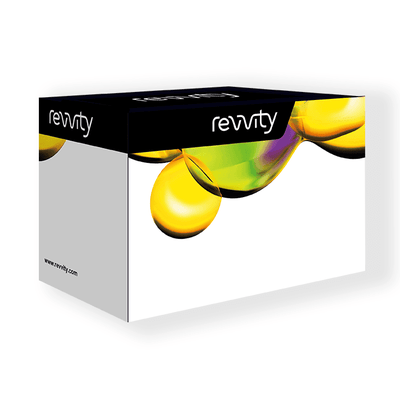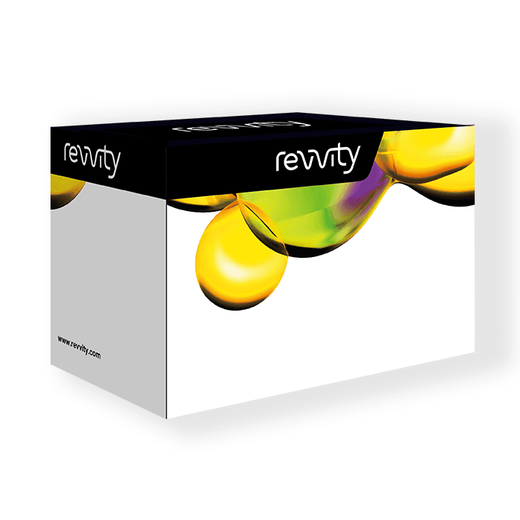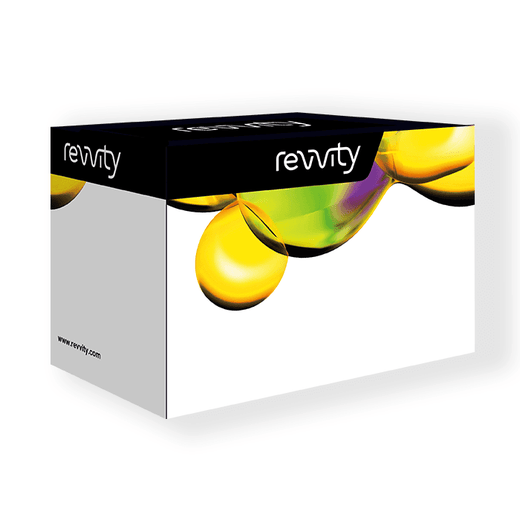

HTRF Human Total MEK1 Detection Kit, 10,000 Assay Points


HTRF Human Total MEK1 Detection Kit, 10,000 Assay Points






The total MEK1 kit quantifies cellular endogenous MEK1 when studying the MAPK/ERK pathway, and can be used as a normalization assay for the phospho-MEK1 kit.
For research use only. Not for use in diagnostic procedures. All products to be used in accordance with applicable laws and regulations including without limitation, consumption and disposal requirements under European REACH regulations (EC 1907/2006).
| Feature | Specification |
|---|---|
| Application | Cell Signaling |
| Sample Volume | 16 µL |
The total MEK1 kit quantifies cellular endogenous MEK1 when studying the MAPK/ERK pathway, and can be used as a normalization assay for the phospho-MEK1 kit.
For research use only. Not for use in diagnostic procedures. All products to be used in accordance with applicable laws and regulations including without limitation, consumption and disposal requirements under European REACH regulations (EC 1907/2006).



HTRF Human Total MEK1 Detection Kit, 10,000 Assay Points



HTRF Human Total MEK1 Detection Kit, 10,000 Assay Points



Product information
Overview
The HTRF total MEK1 assay kit is designed for the quantitative detection of total MEK1, phosphorylated and unphosphorylated, to normalize the phosphorylation status of MEK1. It is the ideal assay for studying the RAS-RAF-MEK cascade in the MAPK/ERK pathway. Phosphorylated by RAF, this dual specificity mitogen-activated protein kinase is responsible for the phosphorylation of ERK, one of the most important signaling nodes, and protein kinase in cell proliferation, survival, and differentiation pathways.
Specifications
| Application |
Cell Signaling
|
|---|---|
| Brand |
HTRF
|
| Detection Modality |
HTRF
|
| Lysis Buffer Compatibility |
Lysis Buffer 1
|
| Molecular Modification |
Total
|
| Product Group |
Kit
|
| Sample Volume |
16 µL
|
| Shipping Conditions |
Shipped in Dry Ice
|
| Target Class |
Phosphoproteins
|
| Target Species |
Human
|
| Technology |
TR-FRET
|
| Therapeutic Area |
Cardiovascular
Neuroscience
Oncology & Inflammation
|
| Unit Size |
10,000 Assay Points
|
Video gallery

HTRF Human Total MEK1 Detection Kit, 10,000 Assay Points

HTRF Human Total MEK1 Detection Kit, 10,000 Assay Points

How it works
Total-MEK1 assay principle
The Total-MEK1 assay quantifies the expression level of MEK1 in a cell lysate. Contrary to Western Blot, the assay is entirely plate-based and does not require gels, electrophoresis or transfer. The Total-MEK1 assay uses two labeled antibodies: one coupled to a donor fluorophore, the other to an acceptor. Both antibodies are highly specific for a distinct epitope on the protein. In presence of MEK1 in a cell extract, the addition of these conjugates brings the donor fluorophore into close proximity with the acceptor and thereby generates a FRET signal. Its intensity is directly proportional to the concentration of the protein present in the sample, and provides a means of assessing the proteins expression under a no-wash assay format.

Total-MEK1 2-plate assay protocol
The 2 plate protocol involves culturing cells in a 96-well plate before lysis then transferring lysates to a 384-well low volume detection plate before adding Total MEK1 HTRF detection reagents. This protocol enables the cells' viability and confluence to be monitored.

Total-MEK-1-plate assay protocol
Detection of total MEK with HTRF reagents can be performed in a single plate used for culturing, stimulation and lysis. No washing steps are required. This HTS designed protocol enables miniaturization while maintaining robust HTRF quality.

Assay validation
Validation of the total-MEK1 assay on various cell lines
Human (Hela, A431, HEK293, Jurkat), murine (NIH 3T3) and Hamster (CHO-K1) cells were grown in a T175 flask at 37°C, 5% CO2 for 2 days. After removal of cell culture medium, 3 mL of supplemented lysis buffer 3 were added and incubated for 45 min. Soluble supernatants were collected after 10 min centrifuging, total MEK1 was detected using 16 µL of cell lysate. Cell lines from other species have not been tested, hence they must be evaluated case by case.

Total-MEK1 assay used to control the phosphorylation status of MEK1
Hela cells (100,000 cells/well) were activated with EGF for 5 min, using the two-plate assay protocol of the Phospho-MEK1 (Ser218/222) and Total-MEK1 assays. Results obtained show a dose-response increase of MEK1 phosphorylation upon EGF stimulation while MEK1 expression level remains constant.

Resources
Are you looking for resources, click on the resource type to explore further.
Download this summary of signaling pathways in the immune system with HTRF targets.
Included:
- Detailed pathways about NK cells, T...


How can we help you?
We are here to answer your questions.






























